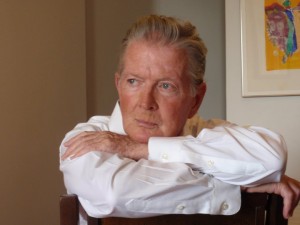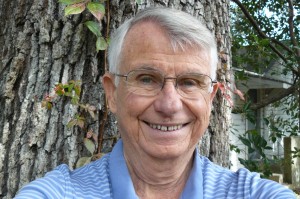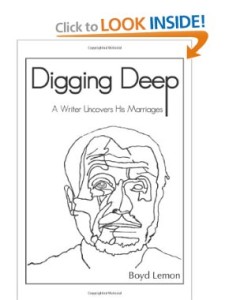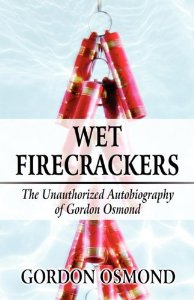This isn’t Perry Mason, folks! I have gathered together two of the finest legal minds of their time for a conversation. I wanted to ask the questions that nobody dares ask a lawyer. Things like… Do you feel a sense of power? What does it feel like to be in the top leagues of one of the most gruelling businesses around? What drives someone to want to learn all of those laws, legalities?
Well, I got my answers and also managed to work with two of the nicest guys I know. Gordon Osmond is a guy I highly respect as a writer and as a man. We both share a love for Johnnie Ray records, Hollywood and quality writing. Boyd Lemon is someone I also deeply respect as he was one of the guys who hired me early on. Did he recognise something in me? I’ve recognised something in him, too. I am proud to call both of these men friends.
Sit down folks, enjoy the bus ride, this one is a stomper!
 Nick: Okay, gentlemen. Boyd… Meet Gordon… Gordon meet Boyd.
Nick: Okay, gentlemen. Boyd… Meet Gordon… Gordon meet Boyd.
Gordon: A pleasure to meet you, Boyd.
Boyd: Hello, Gordon. Pleasure to meet you.
Gordon: Nick, this is what’s called professional courtesy–a very good thing.
Nick: Ha! Well, I am glad we are all going to get on. Okay, let me ask you first, Gordon! What made you become a lawyer?
Gordon: Fire away! [I became a laywer due to] a passion for financial security. I somehow felt that without a sound personal economic footing I wouldn’t be able to accomplish other worthwhile objectives. Too bad some countries don’t take the same view.
Nick: Boyd, did money drive you to become a lawyer?
Boyd: No, not initially. At first, status, prestige and a sense of accomplishment in the eyes of my parents and society drove me to be a lawyer. Only after my wives started spending piles of money did that motivate me to remain a lawyer.
Nick: It seems to me that you both enjoyed what it entailed to be a lawyer. Did you get a sense of power from that career, Gordon?
Gordon: Not at first. But as I rose in the ranks of my Wall Street firm, I did notice that friends and family members were treating me with a bit more respect. That’s surely over now.
Nick: Boyd, you have stated many times that you truly felt unrewarded by your career. What did you want to do with your life?
Boyd: I had a difficult time deciding to go to law school. The other option was to teach, probably government or political science. Once I had been a lawyer for three or four years, I knew I should have chosen teaching, but by that time my wife and I were in debt and I felt I was trapped. I continued to feel trapped for forty-four years, even though I really wasn’t.
Nick: Gordon, you have never spoken about your marriage. Would you say your were trapped? Did you feel hemmed in by society? Debt?
Gordon: Never. I broke out of my only marriage when I discovered a better alternative, and debt was never a problem until the last few years.
Nick: A better alternative?
Gordon: I thought you were going to ask that, O Grand Inquisitor. Let’s just say that I saw a brighter personal future outside of a monogamous heterosexual relationship.
Nick: Boyd, let me ask you, what was the defining moment that told you that you needed to change the way you approached marriage?
Boyd: There was no ‘aha’ moment. It came gradually during the process of writing my first memoir, “Digging Deep.” I realized that wives need attention, and I wasn’t giving it to them. Now that I have recently acquired a dog, I realize that I pay more attention to her than I did my wives.
Nick: Let me ask you first, Gordon, did you feel controlled by the expectations placed on you by your upbringing? Did you feel the need to conform to society?
Gordon: Yes, but I respected those expectations, and they were, in fact, my own. I suppose my marriage was a kind of social conformity, but I went into it with enthusiasm, and to this day don’t really regret it.
Nick: How about you, Boyd. Did you feel the expectation to conform to your parents’ expectations? Marry, settle down, kids, mortgage and collect a pension?
Boyd: I did–my parents’ expectations and society in general. Funny, in my second year of college I was required by my Psych 1 class to read a book that was a number one best seller at the time called “The Other Directed Man.” I don’t recall the author right now. The theme was that the only authentic life was one directed from within rather than by what society and others wanted and expected. It was very persuasive and resulted in my feeling that I was not living the authentic life and this troubled me greatly. Yet, I kept on with the same life that troubled me. I was able to do that by numbing my brain with alcohol (and for a while, other drugs) so that I didn’t feel the pain. Alcohol is very powerful in that respect. Even recently, I was suffering from loneliness and started drinking every night again. Fortunately, I am much more in tune with myself now, and I recognized what I was doing within a few weeks and stopped, though I found it difficult.
Nick: Gordon, if you had been born in the ’90s do you think you would have struggled with your own identity as much?
Gordon: Absolutely not as far as the public acknowledgement phase is concerned. My identity was acknowledged and accepted for a long time privately. But from Stonewall on, many courageous gays took actions which made the public path much easier for those that followed. I and others owe them an unrepayable debt. (Spell check doesn’t like ‘unrepayable’. Too bad.) I wouldn’t like to have been born in the ’90s. I wouldn’t have lived through the “good old days” not to mention the golden age of opera, song recitals, and golden oldies.
Nick: Many people see the birth of the rock and roll movement as the birth of freedom. Were you part of the rock and roll fad, Boyd, or did you stay away from it and stand in the conservative shadow of your parents’ generation?
Boyd: I embraced sex, drugs and rock ‘n’ roll as soon as they were introduced. As for the music, I loved the early Rock and Roll–Rock Around the Clock, etc. But that came just as I was rebelling against my parents, and it was another way to do that. You see, in some respects, I did rebel against my parents, especially my father. In other respects, such as social and economic status, I did not. Why? My therapist said because the fads were less important. How one sees the world in general and his world in particular goes much deeper and is greatly influenced by parents and other parental figures. Few people break away from that.
Nick: Interesting. Gordon, how about you? Did you embrace the new-found freedom, or had you already found it in the past with “the good old days.”
Gordon: I was a fan of gospel and the blues long before it was white cool. By the time Woodstock came around, I had reaped the rewards of a more disciplined life to the extent that I viewed the whole movement as misguided and unproductive.
Nick: Boyd, were you a fan of the Woodstock-era music or did you remove yourself into the easy listening safe haven?
Boyd: I was a great fan of that music right on through to the early ’80s. As my interest in popular music waned in the ’80s, I got into folk, jazz and classical and still am. I disagree with Gordon, if I am understanding him correctly, that [in his opinion] the “movement” was misguided and unproductive. I think the music, sex, etc. guided us toward a much freer society that allows for greater individuality, including Gordon’s sexual preference.
Nick: Let me change direction a bit now. What was your most thrilling legal case, Gordon, and why?
Gordon: First, let me make a couple of points in response to the prior comments. My sexual orientation is not a “preference” like choosing flavors of ice cream. And I promise you, the irresponsibility and griminess of Woodstock drop-outs has nothing to do with freedom. Also, the acceptance of responsibility is anything but a safe haven.
As far as legal cases are concerned, our representation of General Westmoreland in his action against CBS News was quite exciting, and I have no idea why.
Nick: That would have been a fascinating case to work on. How about you, Boyd?
Boyd: One of the few things I enjoyed in the practice of law was the intellectual challenge, and my most intellectually challenging case before a judge who had an IQ of less than 100, was one where I was lead attorney representing the largest retail seller of gold and silver in the world, Monex International. The Federal Government was trying to put them out of business by having their retail contracts declared illegal as a futures contract that was not traded over a designated exchange. Among other things, I got to cross examine an economist who had just stepped down from the President’s Council of Economic Advisors. We lost the case at the trial level, but won on appeal, where we had two judges who actually understood the rather sophisticated economic issues.
Nick: Sounds like a fascinating case, too! So, Gordon did Westmoreland truly believe CBS inflated the body count [of the Vietnam conflict]?
Gordon: You’d have to ask him. He lost the case.
Boyd: Isn’t he dead?
Gordon: Probably. He never writes; he never calls.
Boyd: For pure sex appeal, my favorite case was representing the producer of “Easy Rider” in a fight with Sony over sequel rights.
Nick: Did he win?
Boyd: Yes, the producer won, but died before any sequel was made.
Nick: So, Gordon did you ever get any absurd cases to work with?
Gordon: Not really. My firm was very selective in the cases we took on. We left it to other lawyers to deal with the injunction that everyone deserves their day in court.
Nick: How about you, Boyd? Any cases that gave you the willies?
Boyd: I, unfortunately, had a palimony case for a client who was really crazy, but she happened to be the managing partner’s neighbor. It gives me chills just to think of that case.
Nick: I guess there’s lawyers and then there’s LAWYERS. Do you think it is a hard business to excel at, Boyd?
Boyd: It depends on what you mean by excel. It is a hard business and got harder as the years went by during my career. To excel in the sense of making money, you have to be clever and willing to work long hours for the most part. There is also an enormous difference between Gordon’s practice on Wall Street and the average lawyer who works auto accident cases or represents common criminals or high volume divorce practices. It is almost a different profession. My practice was closer to Gordon’s, but not the prestige that comes with a Wall Street practice.
Nick: Let me ask Gordon, did you ever do cases for free? Legal aid cases just to make a difference?
Gordon: My firm did take on pro bono cases. As for “making a difference,” the expression is so full of political connotations that I choose not to address it.
I think Boyd is entirely correct in his assessment of different kinds of legal practice. The irony is that store front lawyers in Brooklyn or wherever are frequently more skilled and careful than Wall Street lawyers who depend on the “club rules” to cover up negligence.
Boyd: Gordon, I found that to be true, but never heard a Wall Street lawyer admit it, or a big firm lawyer anywhere, for that matter.
Nick: It’s an interesting line of work. I considered it for a time myself. You also did a stint as a legal aid lawyer Boyd, correct? Did you find that to be more fulfilling?
Boyd: Yes, for a year, and I loved it, but my debt was too big to continue unless I got rid of my then wife, which in retrospect I should have done. I also took on pro bono cases while I was with my law firms.
Nick: Interesting comparison between fulfilment and needs. Gordon, did you find it challenging to transition from legal writing to non-legal writing?
Gordon: I found legal writing incredibly fulfilling especially in my practice which was saved, in my opinion, by the society of intelligent and accomplished colleagues and clients. I believe that my love of the English language was very easily transferred into writing fiction and non-fiction. After all, it’s all words, is it not?
Nick: Very good point, Gordon. How about you, Boyd? Did you find it challenging, as I would, to cut out the legal jargon?
Boyd: I did find the transition challenging, but cutting out the legal jargon was not the problem. That was easy. (Actually, good legal writing excludes what you call jargon.) The challenge for me was that legal writing requires a lot of explanation and repetition to make sure that a judge “gets it.” I remember my legal writing professor in law school advising: “Tell them what you’re going to tell them; then tell them; then tell them what you told them.” If you did that in fiction and narrative non-fiction, you would bore your readers to death. When I first started writing fiction and narrative non-fiction, I tended to tell rather than show and do to much explaining. Fortunately, I had some good writers reading my stuff who pointed that out.
Nick: Thank you for your time, guys!
Boyd: Thank you, Nick and Gordon.
Gordon: Thank you too, Boyd; and you, Nick.
I was asked after this interview, “How do you interview these people?” Well, I just ask the questions and I see what the answers are. This was a tough interview. I knew these guys could run rings around me with lawyer talk- that magic language that only lawyers can understand- the ‘inst of the third of the thing’. Huh? Luckily, that didn’t happen! However, if they don’t like how this interview came out, next time I might receive a subpoena instead of a ‘thank you’ at the end!
Both men have written fascinating biographies (click on the book covers below) and you may also visit their respective Amazon author pages (click here for Gordon Osmond and here for Boyd Lemon) to explore these and other works.





2 pings
[…] via The Verdict: The Legal Eagles Meet! | Novel Ideas. […]
[…] Boyd Lemon has recently announced that he will be releasing a fiction book by the end of this year. Sales for his “Mad Men” style memoir “Digging Deep” have been exceptionally strong, and Boyd will be appearing in this month’s “Novel Reads By Novel Ideas” e-magazine to promote his upcoming release. You will not want to miss this one! […]